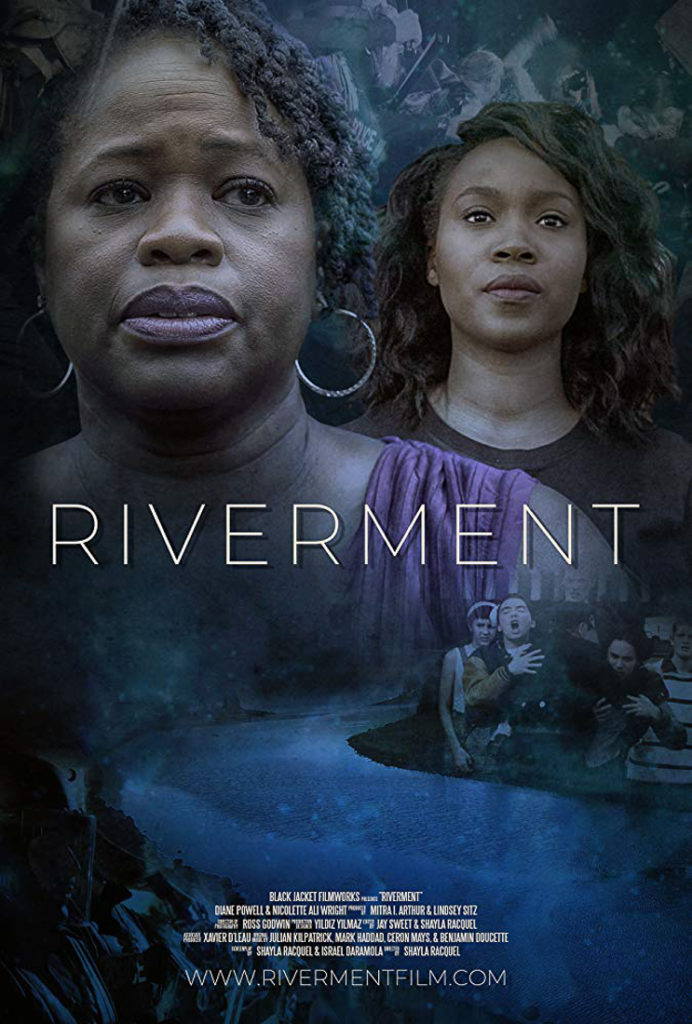Activism has always been a running theme for many Blacks in America since the Mayflower. According to our history (or at least what we have been taught about our history) many people rose up against the injustices that befell upon our race. Some have gone down in history; the best example being Martin Luther King. We know about the “Black” led uprisings in the south before, during, and after the civil war. My own family, hailing from the deep south, equally experienced racial injustices and many times feared for their lives, causing them to make the hard choices in life . . . only to survive another day. That is why I can appreciate the narrative of this timely film, Riverment, an Artemis Women In Action Film Festival 2019 Official Selection.
Synopsis: RIVERMENT – SHORT NARRATIVE – A former Civil Rights activist fears for the safety of her granddaughter when her granddaughter decides to follow in her footsteps. Diane Powell; Nicolette Ali Brown; Kike Ayodeji; Roland Sands; Roderick Bradford; Shayla Racquel, Israel Daramola, writers; Shayla Racquel, director. Adult themes. USA
Interviewed by Kaylene Peoples
Responses by Shayla Racquel, Marili Mejias, Kenneth Wayne, Mitra I. Arthur, and Kike Ayodeji
Tell me a little about your film and what inspired you to make Riverment.
Shayla Racquel: Riverment is a story about a former 1960s Civil Rights activist who fears for the safety of her granddaughter, when her granddaughter decides to follow her footsteps in activism. I was inspired to make this film after a conversation I had with my own Grandmother, who was never coy about what she and my Grandfather endured while living in South Carolina during the 1950s – 60s. With the issues of police brutality being brought to the forefront due to social media, my grandparents were disheartened by what they were seeing on the news, and never imagined that their grandchildren would be fighting the same issues that they were fighting when they were younger. I decided to explore this sentiment in narrative form, comparing and contrasting the movements of the past with the movements of today, while highlighting how women have been and will always be at the forefront of all movements.
How long did it take to complete the film? What was it shot on? Tell me about the filmmaking process.
Shayla Racquel: From writing to wrap, it took about two years to complete the film. I had the idea for a while and I knew that I wanted to complete the film for my thesis capstone project. I began writing in 2015 and brought on two producers from my film school to help me bring the project to life. After months of prior planning, we launched a Kickstarter campaign in the summer of 2016, and raised over $20,000. We began shooting in October 2016, and unfortunately ran into a lot of issues. We were shooting on a Sony FS7, and after a long (and expensive!) day of shooting, we took out the card to dump the footage and the card malfunctioned. We lost the entire day! From there we decided to regroup and go back to the drawing board, spending the next few months hosting events to raise more money to finish the film. We began production again in March of 2017, and wrapped filming in April. We received a grant through CINE, where we were partnered with students at Berklee College of Music to receive music composition and sound design. The students at Berklee did an EXCELLENT job scoring and mixing our film, and we made friends in the process! We finally finished post production in February of 2018, and began the exciting journey of the film festival circuit shortly thereafter.
Let’s talk about the cast and crew. Tell me about who was involved and particularly your key players.
Shayla Racquel: I am so proud to say that not only was my cast diverse, but we had an amazing inclusive crew. My two producers were Mitra I. Arthur and Lindsey Sitz. I always brag about them because without them, there is no way we would have been able to pull off a project of this magnitude with the budget we had. Ross Godwin was the talented artist behind the cinematography and Yildiz Yilmaz was the amazing talent behind the production design. The film was co-written by Israel Daramola and co-edited by Jadaun Sweet. I directed, co-wrote, and co-edited the film. My main cast members were Diane Powell (Maureen), Nicolette Ali (Tyna), Kike Ayodeji (Young Maureen), Marili Mejias (Rinelis), Kenneth Wayne (Kieran), Roland Sands (Kenneth), Roderick Bradford (Young Kenneth), and Donathan Arnold (Damitri). Such an eclectic and talented group of people who came together to make this story come to life.
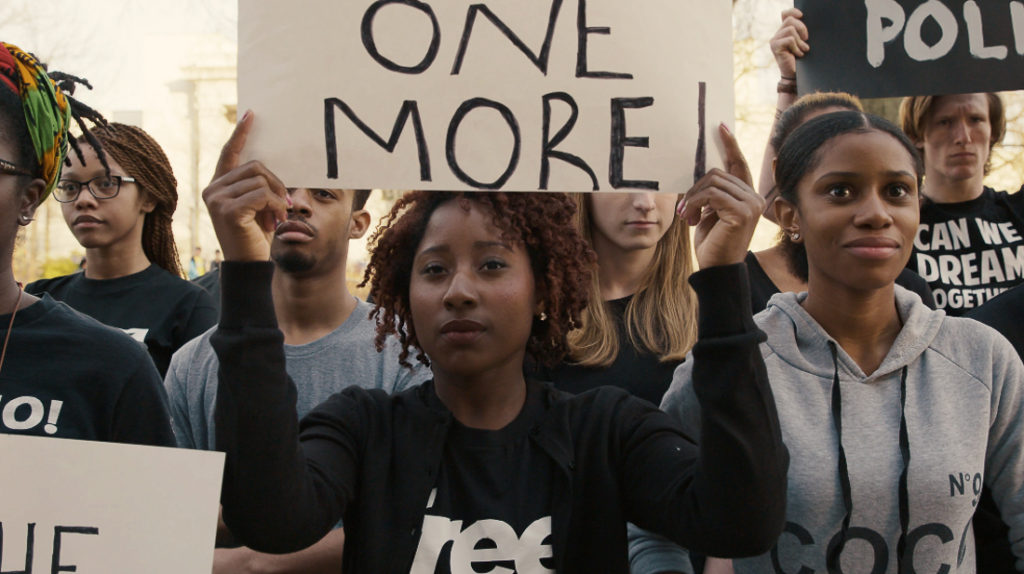
What was your experience on Riverment? What drew you to this film?
Marili Mejias: Riverment was such a professionally carried out production. From start to finish, I was well taken care of, which isn’t something you come across on student films; things are usually disorganized and less thought out. Details can fall through the cracks, but not with Riverment. The fact that it was a socially conscious film that reflected the emotional climate of the times, and that my character was the thoughtful Latino inclusion is what attracted me to Riverment.
Kenneth Wayne: I had a wonderful experience on Riverment! It was my first time working on a film with the cast and crew being predominantly female and diverse. What drew me to the film was the refreshing modern take on social injustice from the Black woman’s perspective . . . as a Black man I am no stranger to the story, so to be a part of a story told from this perspective, I was privileged to be involved.
Mitra I. Arthur: I served as a Co-Producer on Riverment. I was drawn to the film for a number of reasons. First, Shayla’s previous work on Quarter Century and Life’s Checklist let me know the caliber of work she was capable of creating, but also the ways in which she was continuing to grow as an artist. The topic, of course, was quite timely but I was deeply invested in her narrative focusing on the often ignored contributions of Black women in activist movements.
What were some of the most memorable moments on set?
Kike Ayodeji: The most memorable moment on set for me was when we were shooting the 1960s diner scene. I remember how significant recreating the scene felt, and realizing that people actually went through this madness. The scene was so emotionally provoking, that every time we would do another retake of it, people at the stoplight in their cars would clap and yell, “Great job!” I remember seeing all the other businesses around the diner come out of their establishments to stand and watch. It was such a beautiful moment.
Kenneth Wayne: Shayla being goofy! A movie like this it can be tough dealing with the subject matter (especially while you’re in or getting into character) but before every scene you’d see our fearless leader doing what she does best: being a ray of light and a ball of energy. It helped me not take myself too seriously and have fun while we worked. Thanks Shayla!
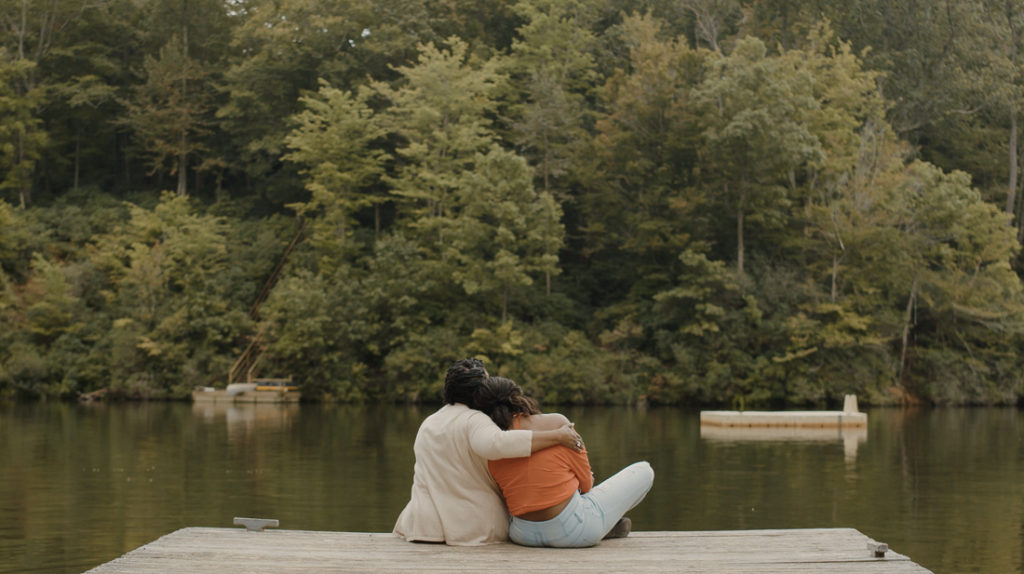
Mitra I. Arthur: With this film the big moments of staging period sit-ins or staging protests with 35 plus cast members will always loom large in my memory, but for me, the most memorable moments are the quiet moments of collaboration & concentration. Those moments are the moments where the director and the crew are conferring on what is necessary for an upcoming sequence. Those moments are when the director and an actor are working through bumpy moments. It is seeing the actors take a moment with themselves because there’s an emotionally difficult scene coming up. It’s the moments where my Co-Producer, Lindsey and I or Shayla and I are meditating on the day or what’s to come.
As a filmmaker, tell me about your background.
Shayla Racquel: I have loved film as a medium since I was 12 years old. As the eldest of nine grandchildren, I started off by planning “programs” and “plays” with my cousins as a gift to the adults in my family. My Grandmother bought me my first camera, and I instantly fell in love and began filming my cousins’ programs, plays, and music video remakes. As I matriculated through grade school and college, I stuck to the medium and had been filming for others since the beginning. I created my first project for myself in 2013 –a webseries entitled Quarter Century. I used Quarter Century to get into film school, where I created my very first short, Life’s Checklist. I enjoy screenwriting and directing the most, however I love to be on set to help in any way that I can. Overall, my film projects have been in over 30 film festivals, received over 10 nominations, and have won 16 awards.
What would you say is unique about this film? Were there any challenging moments during production?
Kike Ayodeji: The uniqueness of this film to me, is the way Shayla, Mitra, and Lindsey put their all into it! I’ve seen some directors treat their thesis films like just another graduation requirement to fulfill. But Shayla really took her time with this project. I heard of all the challenges they faced during production, from losing key cast members at the last minute to losing thousands of dollars worth of footage. I’m so glad they kept going.
Kenneth Wayne: What’s unique about this film is that you experience the generational gap between Tyna and Maureen and you emotionally invest into them in the short amount of time you have. You root for them both and in the end. Despite what happens they leave you with that sense of hope that everyone needs.
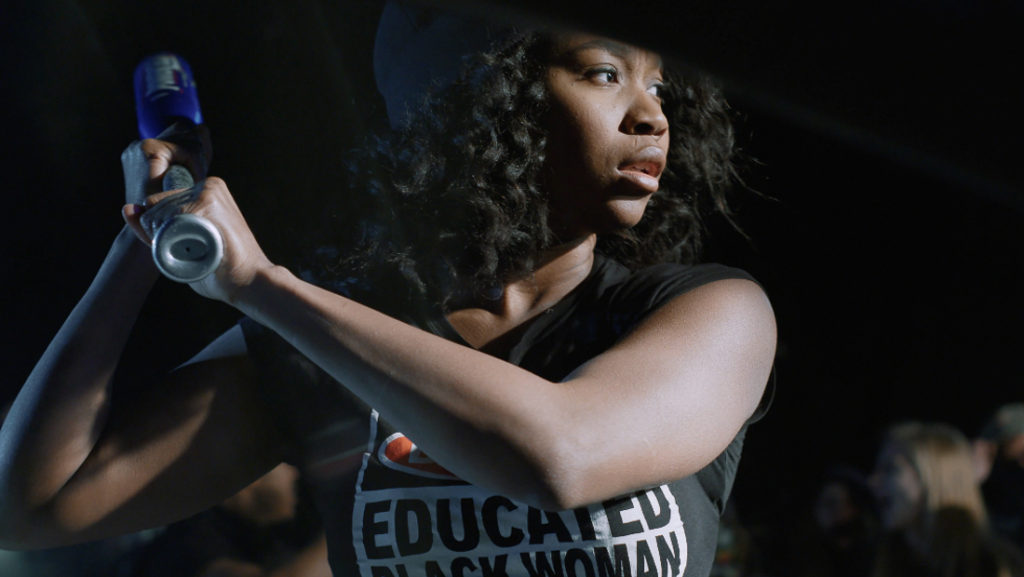
Mitra I. Arthur: Riverment is a short, student-led film, made by a production crew of mostly women. It period scenes, including a 1960s sit-in and a modern protest involving costumed police, with stunts that were filmed in the Washington, D.C. area. Everything about it is unique and a challenge from a young producer standpoint. Despite all the challenges inherent in this, we were lucky to receive a great deal of support (material, financial, etc.) to make it happen.
What were some of the highlights of filming Riverment?
Kike Ayodeji: Some of the highlights of filming Riverment include filming at the historic Florida Avenue Grill! The grill has been opened since 1944, and it is where Dr. Martin Luther King planned the March on Washington. The diner still stands today and it was such an honor to film there.
Marili Mejias: I got a great friend out of the production – Nicolette Ali Brown. She is an amazing actress and a wonderful friend. Love her.
Mitra I. Arthur: It was a joy to help put Riverment together. I loved seeing the raw performances from our talented actors. There were so many moments after a take where Shayla and I or Lindsey and I would just look at each other and utter “Whoa.”
What were some of the obstacles? On your next project what might you do differently and what might you do the same?
Shayla Racquel: Money is always an obstacle when it comes to executing your dream film in the same way you see it in your head. Though my producers were masters at budgeting, we didn’t plan for the bumps in the road like damaged lenses or losing footage, so we lost a lot of money along the way. Next time, I would insert a line in the budget for just “in case” purposes and I would definitely plan extra days for shooting, just in case we have to re-shoot.
What advice could you give to a first-time director/producer?
Mitra I. Arthur: Patience and flexibility are key. Something will absolutely happen to throw you off schedule or cause you to have to adjust your budget. Just accept it from the beginning. Take a deep breath, maybe step away from cast & crew for a private moment to scream. Then come back and figure it out.
Shayla Racquel: Listen to your actors/actresses. They are bending and molding themselves to become a character of your choice. Work with them and spend time getting to know them. This will help you in finding out the best ways to direct them and pull out the performance you want from them.
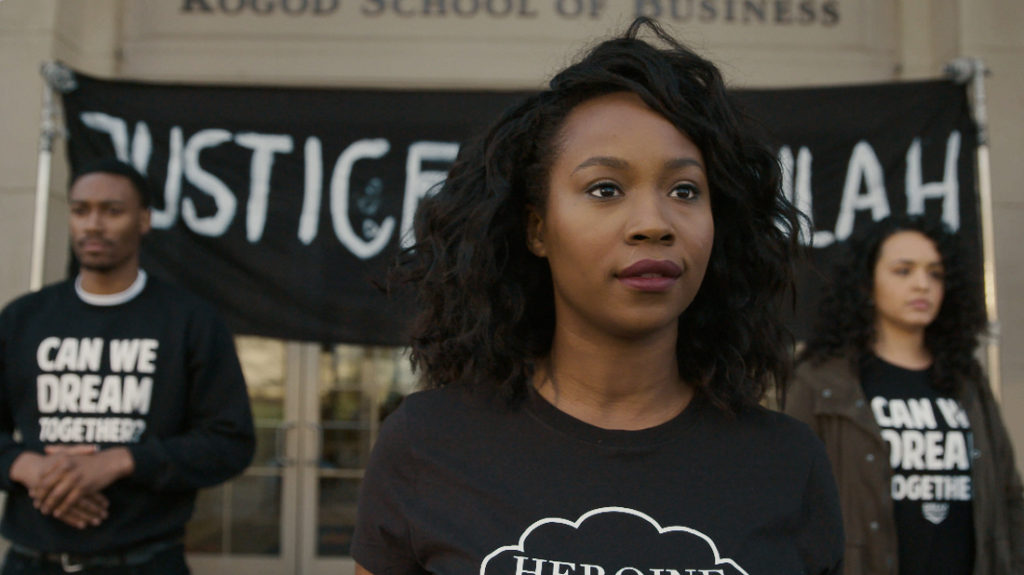
Final last words:
Marili Mejias: I highly encourage folks to watch Riverment for themselves and try to say that you can’t deeply appreciate this film. I think you’ll find that you can.
Kenneth Wayne: It was an honor to be a part of this work of art. Truly one of my best/favorite experiences of being an actor and I’m never going to forget it. Shayla, Mitra, Lindsey, Michelle, Ross, Nicolette, Marili, Diane, Kike, job well done everybody!
Screening & Tickets for Riverment is Sat. April 27, 2019 10:40am WOMEN IN HISTORY–BLOCK: http://www.artemisfilmfestival.com/tickets-showclix/

